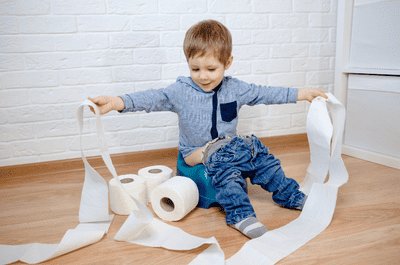Toilet training is a stressful time in any parent and child’s life, and can be even more stressful when you think about toilet training your child with additional needs. However, once mastered, it creates more independence and generally reduces stress in a family’s home – Not to mention reduces nappy costs!
Toilet training needs to be individualised depending on the child’s development, skill set and your family’s needs. Typical barriers for children with additional needs can include a language or communication delay, or impairment, or sensory issues with washing hands, flushing the toilet, or wearing underpants.
Some children may also get stuck on particular routines and bathroom rituals, which sometimes can prove difficult when generalisation needs to occur. Other children may have difficulty with motor planning of particular behaviours and sequencing these behaviours.
Stage not age
Toilet training needs to be viewed as a stage and not an age. It is not true that a child needs to be toilet trained by a particular age, instead, their developmental level is the most appropriate factor to take into consideration. Don’t feel pressured by the progress of typically developing peers in toilet training. Your child’s developmental level is essentially more significant than their chronological age.
What are the signs?
Typically, an early sign a child is ready to begin toilet training is when they start to notice they are wetting themselves. They may touch themselves just before they wet themselves, or they may request their nappy to be changed. This can be either verbal or non-verbal.
Our top toilet training tip
The biggest key to toilet training success is ensuring the process is fun and engaging for your child.
Steps for success
There are three main steps for successfully toilet training both neurodiverse and neurotypical children. Download our FREE resource below for more information about toilet training prerequisites.
If you’re having a tricky time with toilet training or have a neurodiverse kiddo that could benefit from some new learning strategies, please reach out to Aspire Early Intervention’s friendly team for an obligation-free chat.




